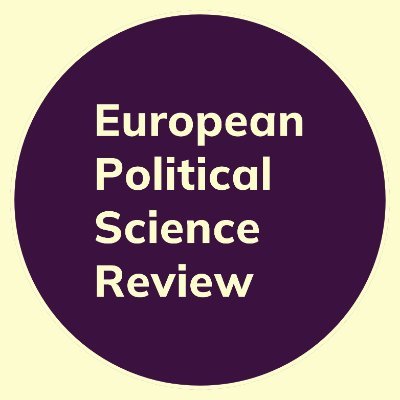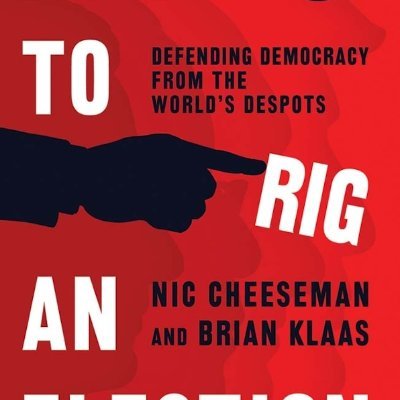
OxPol
@OxPolBlog
The Oxford University Politics Blog | @UniofOxford | @Politics_Oxford
You might like
With migrants crossing Mexico facing high levels of violence, how will Claudia Sheinbaum, set to become Mexico’s first female president, tackle this challenge? Read @chz_guadalupe's take in the latest OxPol post. blog.politics.ox.ac.uk/mexicos-presid…
Publishing is vital in academia but can be daunting for early career researchers. Matthew Hepplewhite and @DrStephanieLuke share insights from a @PolStudiesAssoc Early Career Network roundtable with academic publishing experts: blog.politics.ox.ac.uk/academic-publi…
In our latest article, @DannyBowman10 and Matt Hepplewhite explain how early career researchers can bridge the gap between academia and policy-making to provide evidence-based solutions to complex problems and influence policy standards and outcomes. blog.politics.ox.ac.uk/from-research-…
In our latest OxPol piece, @SLVeriter outlines Latvia's pivotal role over the past decade in countering pro-Kremlin propaganda, highlighting how this small but influential nation rallied the entire EU to formulate a common counter-disinformation policy. blog.politics.ox.ac.uk/small-states-s…
Can Mexicans predict June's presidential election? Ahead of 2 June, Andreas Murr and @mlewisbeck examine the effectiveness of citizen forecasting as a predictor of election outcomes and the ability of citizens to develop this skill as democracies mature. blog.politics.ox.ac.uk/can-mexicans-p…
Dr Monika Brusenbauch Meislová, Associate Professor at Masaryk University Brno, examines how UK-EU relationship has undergone a transformation since 2016. ow.ly/cfwx50RvORE
In our latest blog, @NickWestcott4 argues that far from diverting attention from Gaza, the direct military strikes between Israel and Iran have underlined the risks of not resolving this conflict: ow.ly/CaWy50Rr12k
In our latest post, @DRJamesFDownes @AlessioScopell5 @ValerioA_Bruno, based on their forthcoming book, outline the rise of the radical right in Italy over the last five years, the mainstreaming of its discourse and the implications for liberal democracy. blog.politics.ox.ac.uk/the-rise-of-th…
Ahead of the European Parliament elections, @gzsamaras expresses concern about the EU's drift towards authoritarianism, exemplified by democratic backsliding in Hungary and Italy, and calls on mainstream parties to strengthen the foundations of democracy. blog.politics.ox.ac.uk/sliding-away-f…
In our latest post, @vtsagkr argues that given the often observed confluence of populism and crises, to better understand populism we need to examine both the external determinants of crises and how populist actors skilfully exploit them for support. blog.politics.ox.ac.uk/populism-and-c…
With Hungary set to take over the EU presidency in July 2024, Marietta van der Tol's latest OxPol piece examines Hungarian Prime Minister Orbán's intricate power play to consolidate control at home while projecting influence across Europe and beyond. blog.politics.ox.ac.uk/king-in-his-ow…
In the latest post in the "Democracies Under Siege" series, @crrebin outlines what historic Catholic-Protestant coalition-building tells us about the US Christian Right's goal of radically reshaping US politics today. bit.ly/42aD9q2
What is the future of the EU? As pressure mounts on the EU to reform, MPhil student @sochor_viktoria reviews Alexander Thiele's latest book on five prominent EU reform proposals, their relevance and feasibility. bit.ly/3vNu9eB
In our latest post, @Willallchorn and Katherine Kondor tackle the rising challenge of policing communities dealing with far-right groups online. Analyzing Hungary and the UK, they emphasise the need for clear definitions of far-right groups and content. bit.ly/3NTDpUw
In our latest post, @LubardaB outlines the surprising ways in which the far-right in Hungary is using visual communication to exploit environmentalism for its agenda, and the problems this poses. bit.ly/3TuNfji
What would it mean to study an International Biorelations? Conrad Kunadu, MPhil student in International Relations, shows how reframing diseases as non-state actors reveals new nuances in the relationship between global health and the international system. bit.ly/3Tr4SjX
In our latest post, @TeVoelker argues that to fully understand the rise of the far right, we need to look beyond electoral politics and consider 'discursive mainstreaming', for which she identifies three key drivers. bit.ly/41ney0M
How can and should we define the 'right to seek political office'? Maria-Jose Gomez-Ruiz, DPhil candidate in Political Theory, considers how Mexico's electoral system challenges this right, and what it means for the country's democratic future. bit.ly/4ahUhOh
Against the backdrop of the AfD's rise, @MaximilianKret5 outlines a three-pillar strategy for dealing with the party that poses a threat to German democracy in the latest OxPol post. bit.ly/3t6sZtD
In light of the recent electoral victories of far-right candidates in the Netherlands and Argentina, @ValerioA_Bruno outlines for OxPol the increasing normalisation of far-right ideological traits and the systemic risks for democracies. bit.ly/3NaKz6y
United States Trends
- 1. Sesko 36.8K posts
- 2. Ugarte 12.3K posts
- 3. Richarlison 17.4K posts
- 4. Amorim 61.4K posts
- 5. De Ligt 20.3K posts
- 6. Cunha 24.1K posts
- 7. Good Saturday 29.1K posts
- 8. Tottenham 73.7K posts
- 9. #SaturdayVibes 4,036 posts
- 10. #TOTMUN 15.8K posts
- 11. #MUFC 22.3K posts
- 12. GAME DAY 29.7K posts
- 13. Casemiro 19.4K posts
- 14. Manchester United 78.8K posts
- 15. #Caturday 4,161 posts
- 16. Dalot 11.5K posts
- 17. Richy 3,967 posts
- 18. #BrazilGP 60.6K posts
- 19. Vicario 1,860 posts
- 20. Man United 34K posts
You might like
-
 Oxford Politics and IR
Oxford Politics and IR
@Politics_Oxford -
 Blavatnik School of Government
Blavatnik School of Government
@BlavatnikSchool -
 British Jnl Poli Sci
British Jnl Poli Sci
@BJPolS -
 Political Analysis
Political Analysis
@polanalysis -
 American Political Science Review
American Political Science Review
@apsrjournal -
 Cambridge University Press - Politics
Cambridge University Press - Politics
@CUP_PoliSci -
 European Consortium for Political Research
European Consortium for Political Research
@ECPR -
 Political Studies Association
Political Studies Association
@PolStudiesAssoc -
 European Political Science Review
European Political Science Review
@EPSRjournal -
 Political Studies
Political Studies
@PolStudies -
 RIS
RIS
@RISjnl -
 LSE Government
LSE Government
@LSEGovernment -
 Politics and International Studies Cambridge
Politics and International Studies Cambridge
@Dept_of_POLIS -
 Oxford DSPI
Oxford DSPI
@DSPI_Oxford -
 Annette Idler
Annette Idler
@AnnetteIdler
Something went wrong.
Something went wrong.








































































































































